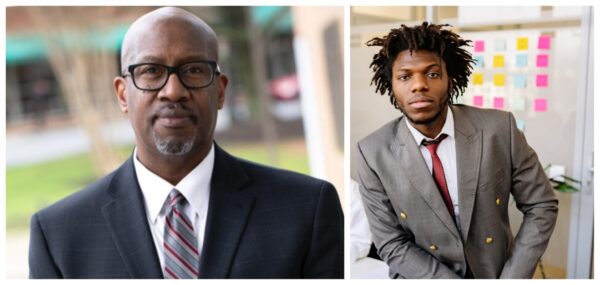There was pivotal moment Douglas Cooper experienced early on in his career at IBM.
While having lunch with a mentor in the IBM cafeteria, he noticed the menu consisted of fried chicken, collard greens and watermelon slices. Suddenly, Cooper didn’t know if he should eat lunch. Would he be perpetuating Black stereotypes? He asked his mentor if he felt the same way. His mentor replied, “Doug, you think they don’t know that you’re Black.”

That was when Cooper, who started his career at IBM in 1987, realized you can’t let other people’s views of you affect you.
“It was the simplest explanation for being as good as you can and what you do and not letting other people’s perceptions of you dictate how you carry yourself,” Cooper told Business Insider.
Now Cooper is the executive director of career services at all-male Historically Black College and University Morehouse College, helping students to prepare to navigate the professional world.
Some issues Cooper points out that he’s struggled with in counseling the students include hairstyles and what mainstream society considers professional.
Cooper said he has encouraged students who wear dreadlocks to cut them off as they start the interview processes in more conservative industries such as financial services.
In 2019, the 11th U.S. Circuit Court of Appeals ruled that discriminating against employees for wearing dreadlocks is legal.
“Unfortunately, that was one of the many accommodations we, as Black Americans, had to make to decrease the potential of race-based discrimination in the workplace,” Cooper said.
The nation has found a shift toward greater acceptance of natural hair.
The CROWN Act (Create a Respectful and Open Workplace for Natural Hair), which prohibits discrimination based on hairstyle and texture, was introduced to the House of Representatives in December 2019. As of March 2022, the act has been passed the House and will now move forward to be considered by the Senate.
Cooper has found that suggesting students cut their locs to be difficult. He wants his students to get an uncomplicated entry into the world of professionalism, but recognizes that asking them to cut their locks is asking them to lose some of their personal authenticity.
Cooper also stresses to his students that the HBCU world is something of an “artificial” environment. He wants them to be prepared for the white corporate environment.
“You’re surrounded by all these really motivated, smart, ambitious, young Black men. You’re one of the hundreds, of thousands,” he said of Morehouse.
“But when you leave Morehouse, the world will look very different.”
Cooper points out the Black people are constantly questioned on their capabilities and professionalism. “The equalizer is continuing to work on your craft and be the best in terms of the quality of your work that will negate questions of your professionalism,” he said.
He added, “Broadly, it’s true that professionalism is historically associated with white maleness, but there are a lot of Morehouse grads in influential positions. Young Black professionals, their perception of professionalism is not defined by white maleness — but those who are in positions of influence that are successful who they look to model their careers after.”




